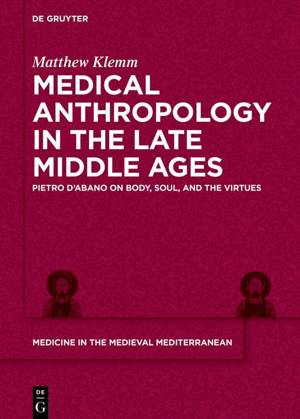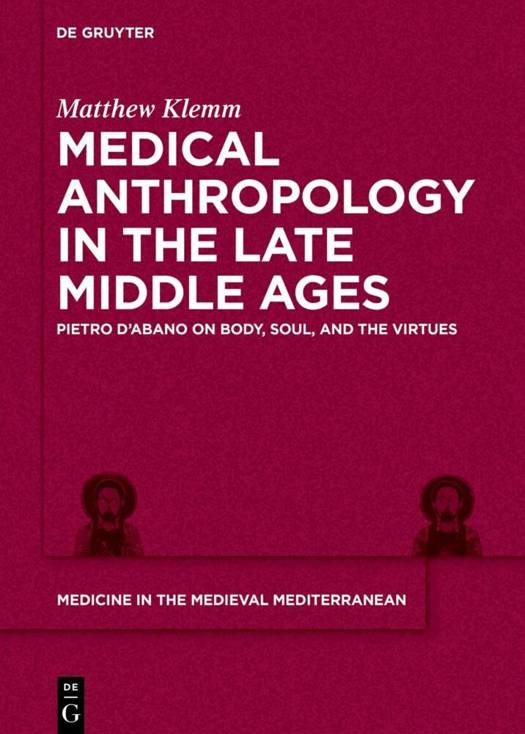
Je cadeautjes zeker op tijd in huis hebben voor de feestdagen? Kom langs in onze winkels en vind het perfecte geschenk!
- Afhalen na 1 uur in een winkel met voorraad
- Gratis thuislevering in België vanaf € 30
- Ruim aanbod met 7 miljoen producten
Je cadeautjes zeker op tijd in huis hebben voor de feestdagen? Kom langs in onze winkels en vind het perfecte geschenk!
- Afhalen na 1 uur in een winkel met voorraad
- Gratis thuislevering in België vanaf € 30
- Ruim aanbod met 7 miljoen producten
Zoeken
Medical Anthropology in the Late Middle Ages
Pietro d'Abano on Body, Soul, and the Virtues
Matthew Klemm
€ 182,45
+ 364 punten
Omschrijving
This book considers the introduction of materialist and physiological reasoning into late medieval discourse on the soul in the work of Peter of Abano (d.1316); in this, it adds a vital component to our understanding of this important period in the history of medicine and of the philosophy of human nature. Peter was an influential physician and philosopher whose activities spanned from Paris to Padua to Constantinople, where he played a vital role in the appropriation of Greek and Arabic medical and natural philosophical sources in the Latin West. In his engagement with these sources, he sought a "reconciliation" (as his most famous work, the Conciliator, was titled) of medicine and philosophy. Through this reconciliation, Peter develops a rich description of the integration of physical and spiritual operations, and of physiological and mental capacities, leading him to discussions of imagination, moral virtues, and intellectual powers. Because Peter developed many of his ideas within a traditional medical framework, he created a distinctively "medical" anthropology. His unique understanding of human nature would remain influential for centuries to come.
Specificaties
Betrokkenen
- Auteur(s):
- Uitgeverij:
Inhoud
- Aantal bladzijden:
- 169
- Taal:
- Engels
- Reeks:
- Reeksnummer:
- nr. 11
Eigenschappen
- Productcode (EAN):
- 9783110611342
- Verschijningsdatum:
- 30/12/2024
- Uitvoering:
- Hardcover
- Formaat:
- Genaaid
- Afmetingen:
- 170 mm x 244 mm
- Gewicht:
- 476 g

Alleen bij Standaard Boekhandel
+ 364 punten op je klantenkaart van Standaard Boekhandel
Beoordelingen
We publiceren alleen reviews die voldoen aan de voorwaarden voor reviews. Bekijk onze voorwaarden voor reviews.









